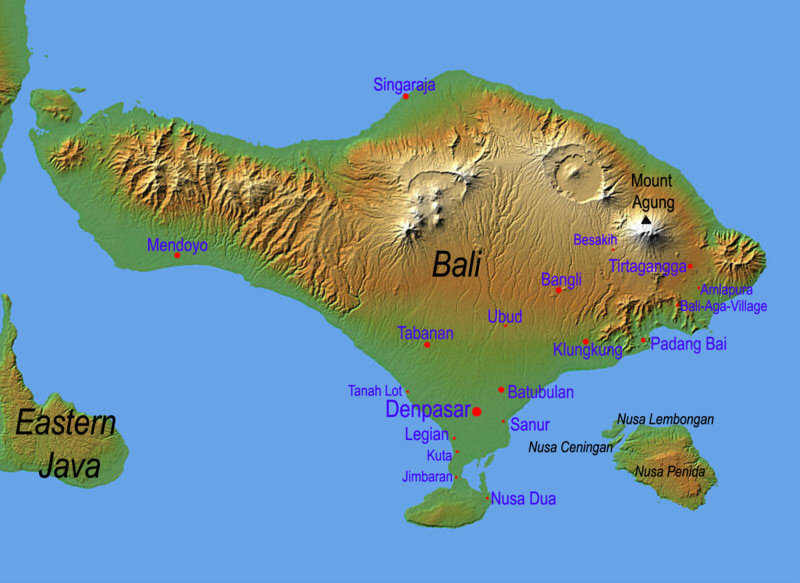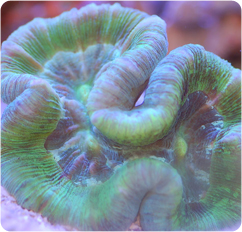|
Collection Point: Bali

Just east of Java in the Lesser Sunda Islands is the Indonesian province of Bali. During the Pleistocene, Bali was connected to Java, Sumatra and mainland Asia, but today it is an island paradise fringed with white and black sand beaches that open onto stunning expanses of tropical fringing reefs. Denpasar, the provincial capital of Bali, is one of the leading exporters (along with Jakarta) of Indonesian livestock bound for the marine aquarium industry, and the adjacent Indonesian reefs, oceans and seas are home to some of the most coveted species in the hobby.
Bali is located just south of the equator in the heart of Indonesia. Indonesia is home to roughly twenty-percent of the world’s coral reefs, and it is one of the most biologically diverse marine regions in the entire Indo-Pacific. As a whole, the Indo-Pacific is itself is the most diverse marine ecosystem on the Planet with more than 500 species of hermatypic corals growing there. That’s at least five times the number of hermatypic corals found in the Western Atlantic (Caribbean Sea). Indonesia is ground zero for many of the popular large-polyp stony corals found in the hobby. While there are many excellent collection areas for Indo-Pacific species bound for the aquarium trade (e.g. the Solomon Islands, Fiji, the Marshall Islands, etc.) the Indo-Australian Archipelago, where Bali is located, is without a doubt the epicenter.
The Indo-Australian Archipelago is comprised of the Malay Peninsula, northern Australia, and the numerous islands of Indonesia, the Philippines and Melanesia. While the biodiversity—both terrestrial and marine—of the region is remarkable, that biodiversity is increasingly at risk. On land, we have seen the extinction of the Bali tiger (Panthera tigris balica), one of three sub-species of tigers found in Indonesia. Likewise, the outlook for many of the reefs around Bali at the beginning of the twenty-first century was rather dismal as a result of coral bleaching (secondary to global climate change), pollution from terrestrial run-off and destructive fishing. The last category bears special mention in relation to the marine aquarium trade.
Cyanide fishing, dynamite fishing and other non-sustainable fishing methods have been notoriously used throughout the Indo-Australian Archipelago. While many of these unsavory fishing practices have been employed as part of the food fish industry, the marine aquarium industry has also been supplied by collectors utilizing these methods. While these practices are now illegal, the pressures of increasing population, mounting poverty and a natural resource in trouble, have driven some local fishermen to continue these unscrupulous collection methods.
In many areas around Bali, it is illegal to collect coral, and the government is increasingly putting resources into enforcing conservation practices in areas such as the Bali Barat National Park in northwestern portion of the island. In March of 2008, during a three-day forum held in Nusa Dua, Bali, a plan was revealed to build a coalition of ten countries to jointly combat illegal, unreported and unregulated fishing and collection practices (The ten nations are Australia, Brunei Darussalam, Cambodia, the Philippines, Malaysia, Papua New Guinea, Singapore, Thailand, Timor Leste, and Vietnam). “Illegal fishing demands regional cooperation because this is a cross-border problem,” said Aji Sularso, director general of monitoring and control of maritime and fishery resources at the Indonesian Maritime and Fisheries Ministry. It is estimated that Indonesia loses up to 25-percent of its fishery annually because of illegal fishing.
In addition to local conservation efforts, CITES (the Convention on International Trade in Endangered Species of Wild Fauna and Flora) closely monitors all imports and exports of listed species. CITES is an international agreement to stop the trade in species whose survival may be threatened. There are currently more than 30,000 species of animals and plants protected by CITES, including many aquarium favorites such as the popular Open Brain Coral (Trachyphyllia geoffroyi) which is collected in Indonesia.

Just because a species is protected by CITES does not mean that it is either endangered or illegal to purchase. For example, CITES monitored the legal exportation of 51,000 wild-caught Open Brain Coral specimens from Indonesia in 2007. In fact, most of the Bali coral available to hobbyists is legal, but illegal activity remains a serious threat to Bali’s reefs. In September 2007, one of the largest illegal shipments of coral from Indonesia was seized in the United Kingdom. This illegal shipment included illegally collected Open Brain Coral, as well as five other species protected by CITES. An investigation revealed that these corals were bound for wholesalers in the United Kingdom that would then sell the illegal specimens to retail stores throughout the England.
While local efforts and international agreements have gone a long way to protecting this natural ecosystems which is vital to the marine aquarium hobby, it is still essential for each individual hobbyist to take responsibility for his or her own actions. As an aquarist, researching species before you buy (and then only buying your livestock from a reputable dealer) is the first step in promoting appropriate conservation and ensuring a sustainable hobby. The survival of ecosystems such as the reefs around Bali need all the help they can get, so once you’ve acclimated your new specimen to your aquarium, take the time to learn about that animal’s natural ecosystem. Not only will this help you care for the species better, but it will also make you more knowledgeable about the bigger picture. Knowledgeable hobbyists can and should be on the frontline of reef conservation not only in places like Bali, but worldwide.
|